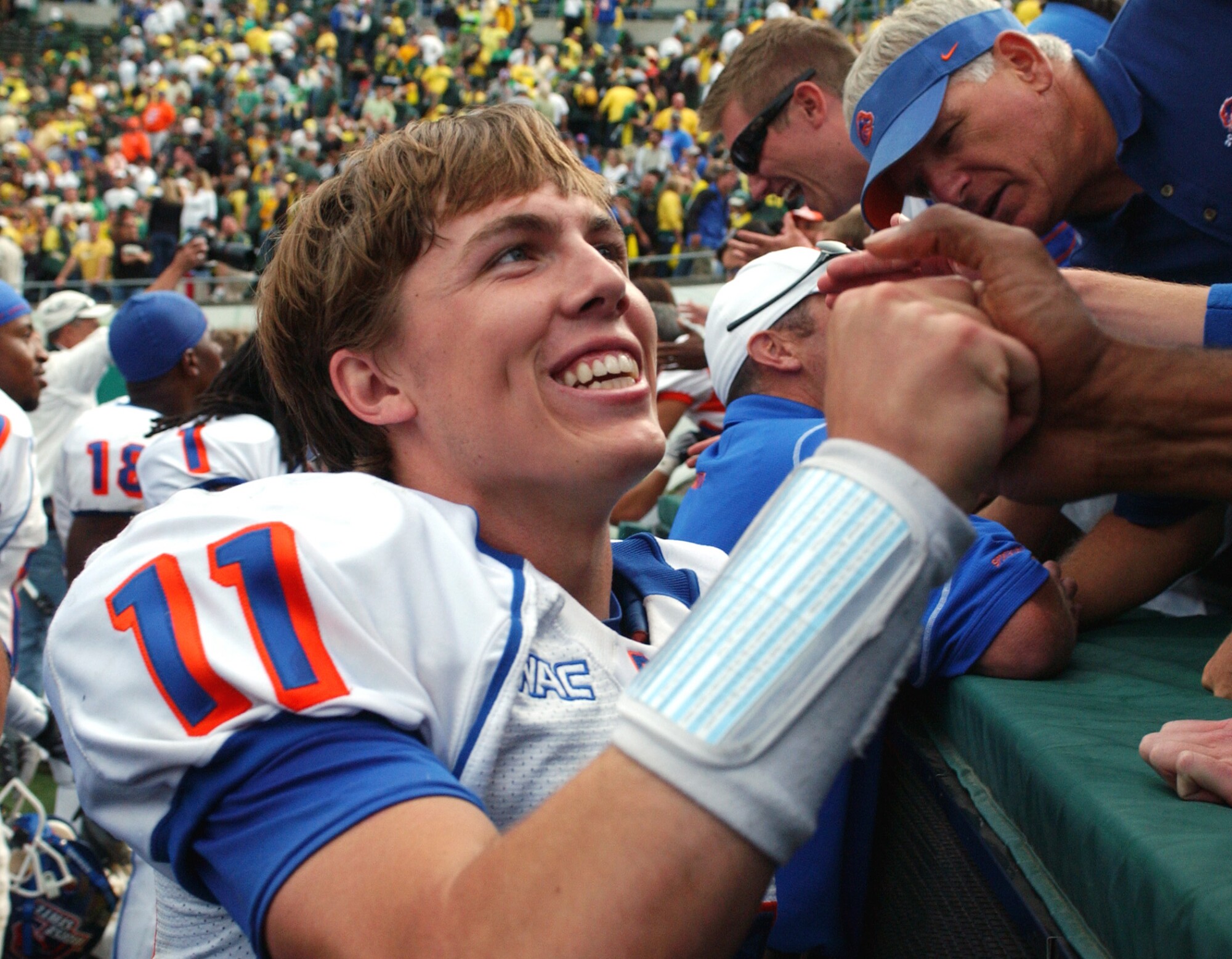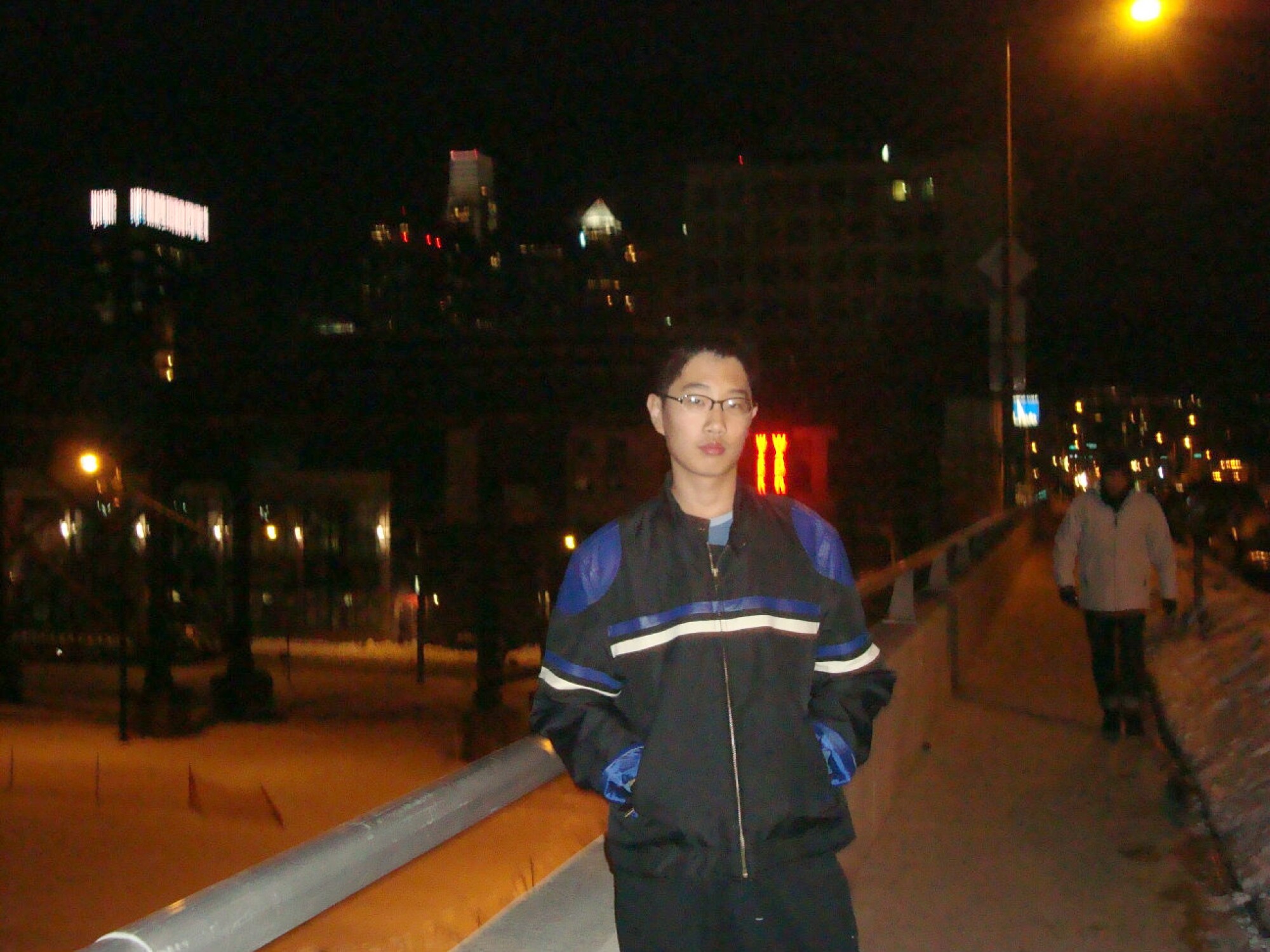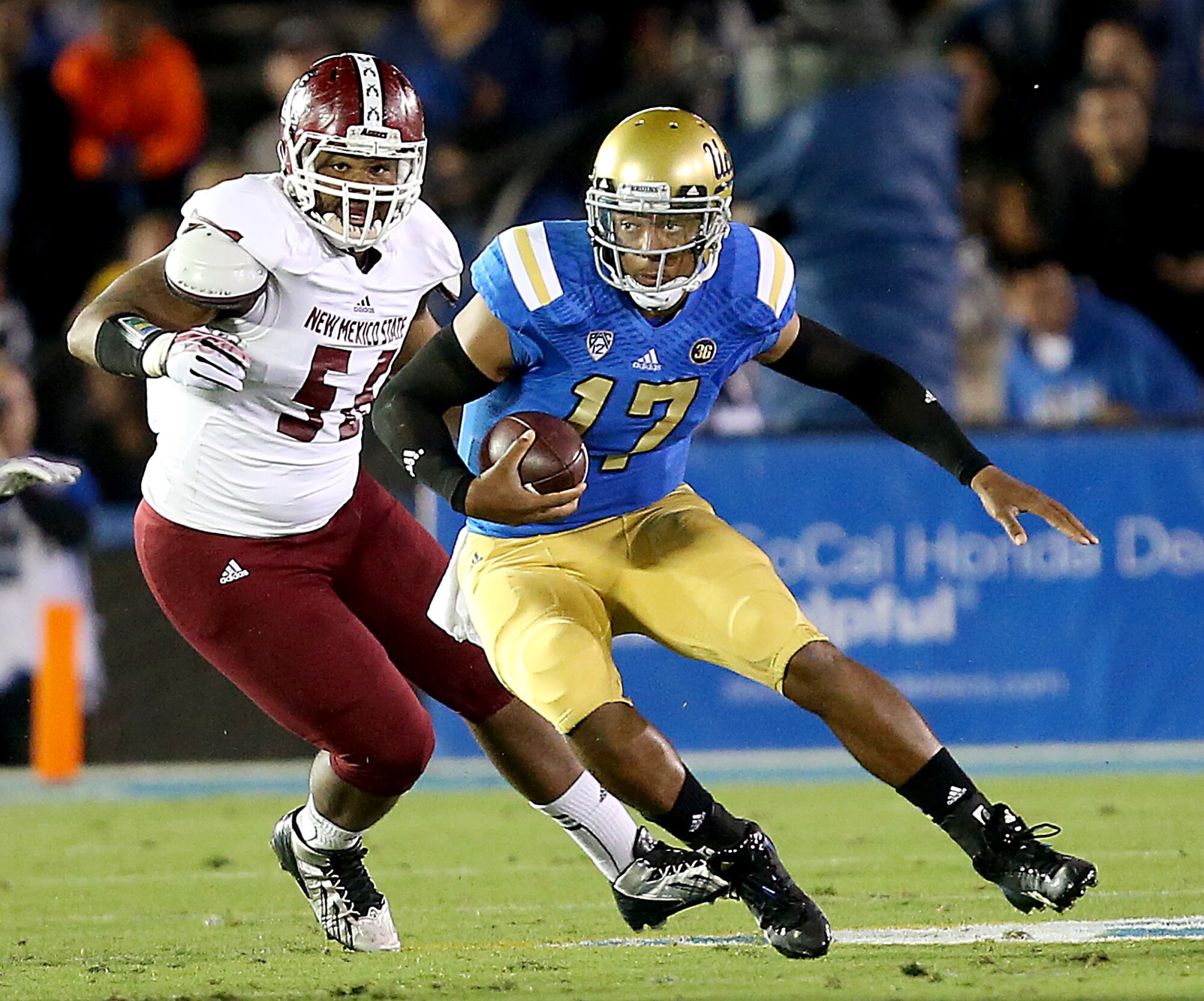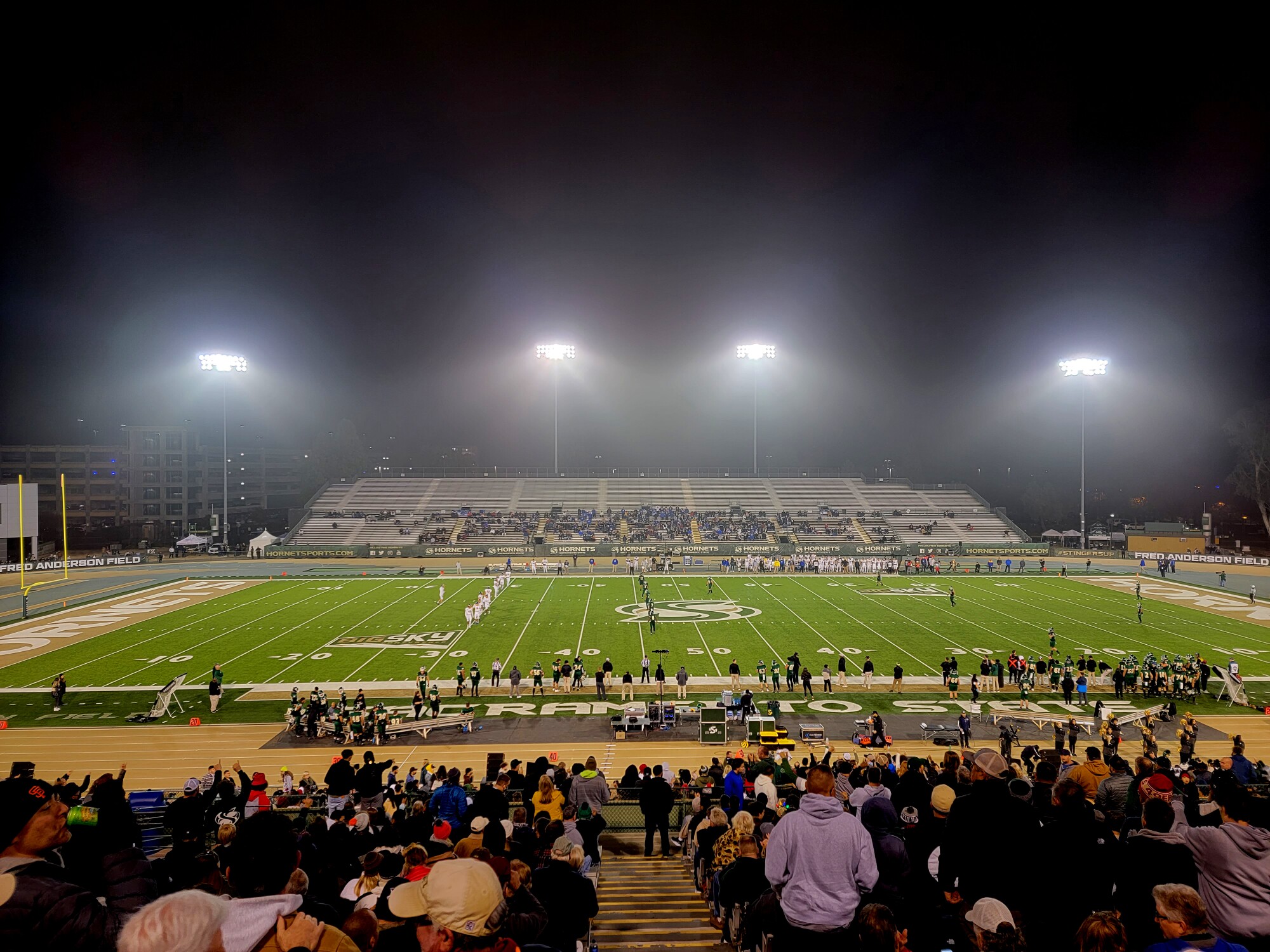How college football helped this ‘parachute kid’ understand America
Nine months after arriving in the U.S. from South Korea, I watched my first college football game.
I was 12 and living in a suburban house with a host family I barely knew.
On a small TV in my bedroom, I watched Rutgers upset Louisville. Coach Greg Schiano got drenched in Gatorade. Thousands stormed onto the field, dressed in scarlet and white.
The joy I witnessed that night was like nothing I had ever seen. From that moment, I was hooked.
As I navigated a new country without my parents, as I was forced to move three times in three years across Southern California suburbia, college football on fall Saturdays was the only constant in my life.
My day started at 9 a.m., through late Pac-10/Pac-12 games and sometimes Hawaii games that ended after midnight. On my morning bike rides to school, I listened to podcasts rehashing the weekend’s games.
College football became my gateway to understanding my new home. College football, to me, was America at its best, wildest and funnest.
In February 2006, I landed at Los Angeles International Airport for what I thought was a brief trip to Disneyland.
My mother, to this day, insists that I wanted to move here.
I was bullied in school in Seoul. Only one kid showed up to my 11th birthday party at Pizza Hut. I didn’t know anything about America, beyond some greeting words and Britney Spears. My mother thought I needed to learn English and could use a change of scenery.
Maybe I did. But whatever desire I had to live in America evaporated on my first day. My mom’s friend picked us up from LAX and drove us to Koreatown.
“This place looks like Seoul from the 1970s,” I remember blurting out in the car.

Jeong Park and his mother at SeaWorld in February 2006, soon after Park landed in the U.S. for what turned out to be a 16-year (and counting) stay while his parents remained in Korea.
(Jeong Park / Los Angeles Times)
After some forgettable excursions to Disneyland, Universal Studios and other attractions, my mom went back to Korea, not having the resources or the paperwork to stay here with me. I became a “parachute kid,” studying in the U.S. alone without any immediate family — a not uncommon practice in some parts of Asia among parents eager to give their children an American education.
I spent the next few months perplexed and crying alone in a dorm room at a Van Nuys boarding school that catered to parachute kids.
The six months I had spent in Korea listening to English instruction tapes proved spectacularly useless. Other kids sneered at me. Interactions with my roommates mostly took the form of them yelling at me to be quiet.
I tried listening to rap. But my classmates laughed when I professed a liking for 2Pac, telling me I was “fresh off the boat.”
— Jeong Park
Bland chicken burgers and stale rice with Panda Express knockoffs were barely edible. Chili cheese fries in the cafeteria were my salvation.
The only hints of home came in weekend van rides to a nearby 99 Ranch grocery store and brief phone calls with my parents.
Soon, I was sent to live with a host family in Oak Park, near Thousand Oaks. The few connections I had made in Van Nuys were gone in a flash. I had to start all over again. It was here that I watched my first college football game.
Every immigrant has stories about trying to fit in, often clumsily and unsuccessfully.
I tried listening to rap. But my classmates laughed when I professed a liking for 2Pac, telling me I was “fresh off the boat” and would never truly understand his songs. I tried listening to Iron Maiden. That didn’t work either.
I didn’t start out following college football as a way to fit in. Even with USC at its peak during the mid– to late 2000s, my classmates in suburban Southern California were more likely to talk about Kobe Bryant and the Lakers.
Column One
A showcase for compelling storytelling from the Los Angeles Times.
I just liked the emotion and insanity — the weekly upsets, the students storming the fields and tearing down goalposts, the lovable Lee Corso with his rotating cast of mascot heads.
After a Korean American student killed 32 people at Virginia Tech in 2007, my classmates gave me weird looks and cracked jokes about how the shooter looked like me. I found healing and comfort in watching thousands of fans cheer on the Hokies to the tune of Metallica’s “Enter Sandman.”
I learned of Cajun cuisine, now probably my second favorite after Korean, through watching Louisiana State games and seeing dishes like gumbo.
For me, the South wasn’t the cultural wasteland that some of my classmates thought it was. After all, it was the home of the 12th Man (Texas A&M), the Swamp (Florida) and Toomer’s Corner (Auburn).

Boise State quarterback Kellen Moore celebrates his team’s 37-32 win over Oregon after the end of an NCAA college football game in Eugene, Ore., on Sept. 20, 2008.
(Greg Wahl-Stephens / Associated Press)
I found myself cheering for Kellen Moore and the Boise State Broncos, a perennial underdog that for years waged an unsuccessful fight to win a national championship as a team outside the so-called power conferences.
Looking back, I think I saw myself in the Broncos — someone outside the system trying to prove themselves to the system. In 2010, when I found out I was an undocumented immigrant, the Broncos were becoming a legitimate national title contender. I clung to my fandom even more.
As I bounced from one host family to another, from Oak Park to La Mirada to Diamond Bar, the sport was there for me every Saturday. When my host family got tired of me hogging the TV and sent me to my room, I would go on my computer to check updated box scores and listen to radio streams.
I was still struggling to fit in at school, but I found my refuge in college football blogs and message boards.
Every comment, every meme I posted helped me bond with fans from around the country. They didn’t care that I came from Korea. They just wanted me to love the sport.
Eventually, I found friends, hanging out with them at the mall and arcade, just like any suburban kid. I became captain of the cross-country team. I got into UCLA.

Jeong Park in Philadelphia around 2010, four years after he arrived in the United States.
(Jeong Park / Los Angeles Times)
But I continued to ignore and deflect. I was often the first to joke about my accent, my Korean heritage or even eating dogs, just to beat others to the punch. (For the record, I have never consumed dog meat.) I often referred to myself as a “FOB,” or “fresh off the boat,” even though I had been in the U.S. for seven years.
Meanwhile, my hope of legalizing my immigration status was fading. Congress repeatedly failed to create a pathway to citizenship for people like me. One possible route — serving as a Korean translator for the U.S. Army — closed when the government whittled down the program.
When I got Deferred Action for Childhood Arrivals in 2016, which gave me a two-year, renewable work permit and protection from deportation, it was a reminder that I belong here.
It was also a reminder of how little I belong. The Trump administration soon threatened to shut down DACA, and it remains the subject of litigation today.
Even as my career progressed, even as I began to enjoy some rights and privileges — I almost cried at the DMV getting my first driver’s license at age 22 — I pondered returning to Seoul.

Brett Hundley was the UCLA quarterback when Jeong Park attended UCLA in 2013.
(Luis Sinco / Los Angeles Times)
I was tired of existing in a legal limbo, my future hitched to a document that expired every two years.
Meanwhile, the sport that taught me about America was receding into the background.
That driver’s license, made possible by DACA, gave me the freedom to range — to head across town for dinner or take a spur-of-the-moment road trip. Spending Saturdays glued to the TV was no longer as appealing.
College football’s flaws were also becoming apparent to me — glaring financial disparities, mistreatment of players, a playoff system rigged against weaker teams. I no longer needed college football, and I was increasingly disgusted by it.
With the recent news that my alma mater, UCLA, is abandoning the Pac-12 and moving with USC to the Big Ten, I thought about calling it quits.
With the weakening of the Pac-12, we are likely to have two power conferences — the Big Ten and the Southeastern Conference — with other teams having even less of a shot at a national championship.
The severing of regional connections and longtime rivalries will kill one of the things I love most about the game. Why would I want to watch UCLA play Rutgers in New Jersey?
But I haven’t given up on America, yet. Earlier this year, I started my dream job covering Asian American communities for The Times.
And sometimes, I think back to a college football game I attended late last year.

The Sacramento State Hornets played the South Dakota State Jackrabbits on Dec. 4 at the Hornet Stadium in Sacramento. The Jackrabbits won 24-19.
(Jeong Park / Los Angeles Times)
My ticket cost $10. The game between the Sacramento State Hornets and the South Dakota State Jackrabbits wasn’t televised. I didn’t recognize any of the players. Troy Taylor, Sacramento State’s coach, was making $240,000 a season — 2% of what Lincoln Riley is reportedly making this year at USC.
I knew nothing about the two teams, but the moment I sat down in the bleachers, I felt I belonged. I rumbled my feet along with the crowd as the Hornets kicked off. I high-fived a bunch of strangers when they scored, making a furious comeback before losing.
I was reminded of why I still love the game. I’ll be watching this year as UCLA kicks off its season against Bowling Green at the Rose Bowl on Saturday.
For all the latest Sports News Click Here
For the latest news and updates, follow us on Google News.
